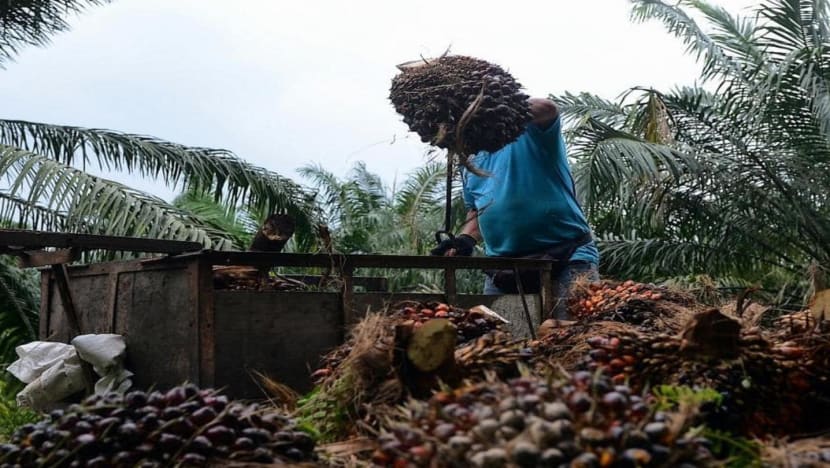Malaysia looks to meet global palm oil demand after Indonesia's export ban, but labour shortage an issue

Malaysia is the world's second-largest producer of palm oil after Indonesia. (File photo: Bernama)
KUALA LUMPUR: The global demand for palm oil is likely to switch to Malaysia after Indonesia's export ban, but industry players warned that labour shortage could hamper output.
Plantation Industries and Commodities Minister Zuraida Kamaruddin told the media on Sunday (Apr 24) that Malaysia should be able to increase its production of palm oil with the reopening of the country’s borders.
“I am confident that Malaysia is ready and able to supply palm oil to global markets because our production is expected to rise following the reopening of its borders, which has enabled the hiring of foreign workers,” Mdm Zuraida was quoted as saying by Bernama.
In an announcement last Friday, Indonesian President Joko Widodo said the exports of cooking oil and crude palm oil (CPO) would be suspended starting this Thursday in a bid to stabilise prices in the country.
“The government prohibits the exports of palm oil used in cooking oil,” said Mr Widodo, who is also popularly known as Jokowi.
In recent months, cooking oil prices have soared in Indonesia amid an increase in global CPO prices, prompting the government to implement price ceilings and export restrictions.
In a separate event on Sunday, Deputy Plantation Industries and Commodities Minister Wee Jeck Seng said the local palm oil production is currently being affected by the ongoing labour shortage issue, and therefore it is unlikely that Malaysia will be able to fulfil the high export demand gap left by Indonesia.
“This imbalance in demand and supply would see prices of palm oil and other competing oils soaring," he was quoted as saying by Bernama.
Dr Wee said as of last year, Indonesia's palm oil accounted for 59 per cent and 56 per cent of the world’s palm oil production and exports respectively, adding that Indonesian palm oil exports represented 30 per cent of total world oils and fats exports.
“As such, this drastic step taken by Indonesia will definitely have a massive impact on other countries, especially major palm oil importers such as China, India and the European Union,” he said after attending his constituency’s Muslim breaking of fast event.
The deputy minister added that the Malaysian government’s move to set price control and a ceiling price for palm cooking oil could also help protect the consumers from the effects of surging palm oil prices in the global market.
However, Dr Wee said that this also means that the government will have to bear the higher cost of cooking oil subsidies due to the increase in palm oil prices in the market to ensure that the welfare and interests of Malaysian consumers are protected.
ADVANTAGE TO MALAYSIAN PALM OIL INDUSTRY
Meanwhile, the Malaysian Palm Oil Association (MPOA) said the Indonesian export ban is likely to be an advantage to the Malaysian palm oil industry.
The Star quoted MPOA chief executive officer Nageeb Wahab as saying that he envisaged the local palm oil industry would be able to reap higher export earnings this year, particularly in the next two to three months.
Related:
Malaysian Palm Oil Board (MPOB) director-general Ahmad Parveez Ghulam Kadir said that “any policy changes by Indonesia will definitely affect Malaysia” as the latter is the second-largest producer and exporter of palm oil after Indonesia.
“The ban will definitely see most of the global palm oil demand switching to Malaysia,” he said, as quoted by the Star.
However, he also noted that Malaysia is facing an issue with palm oil supply due to the severe labour shortage and the country may not be able to absorb much of the excess global demand.













